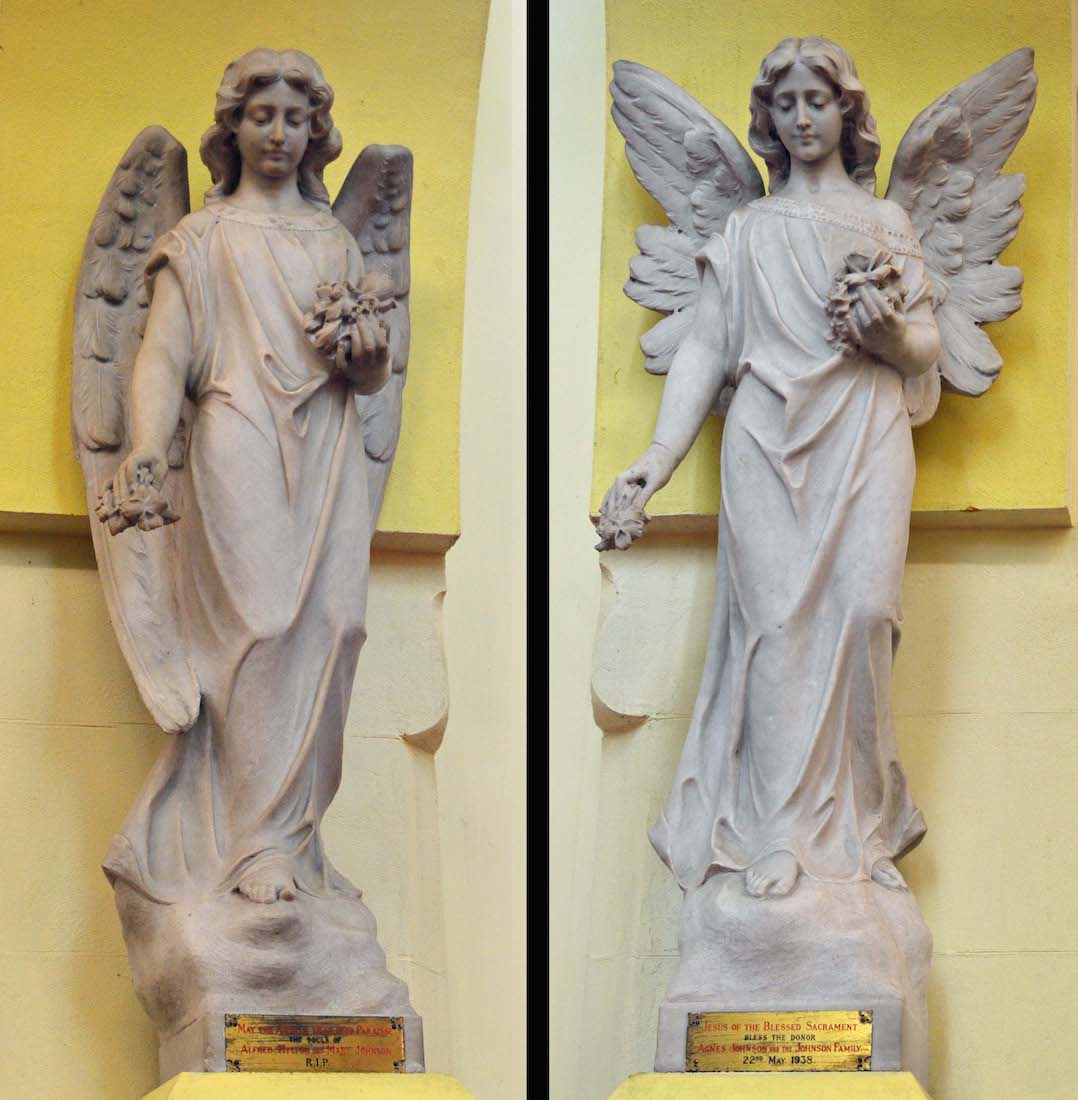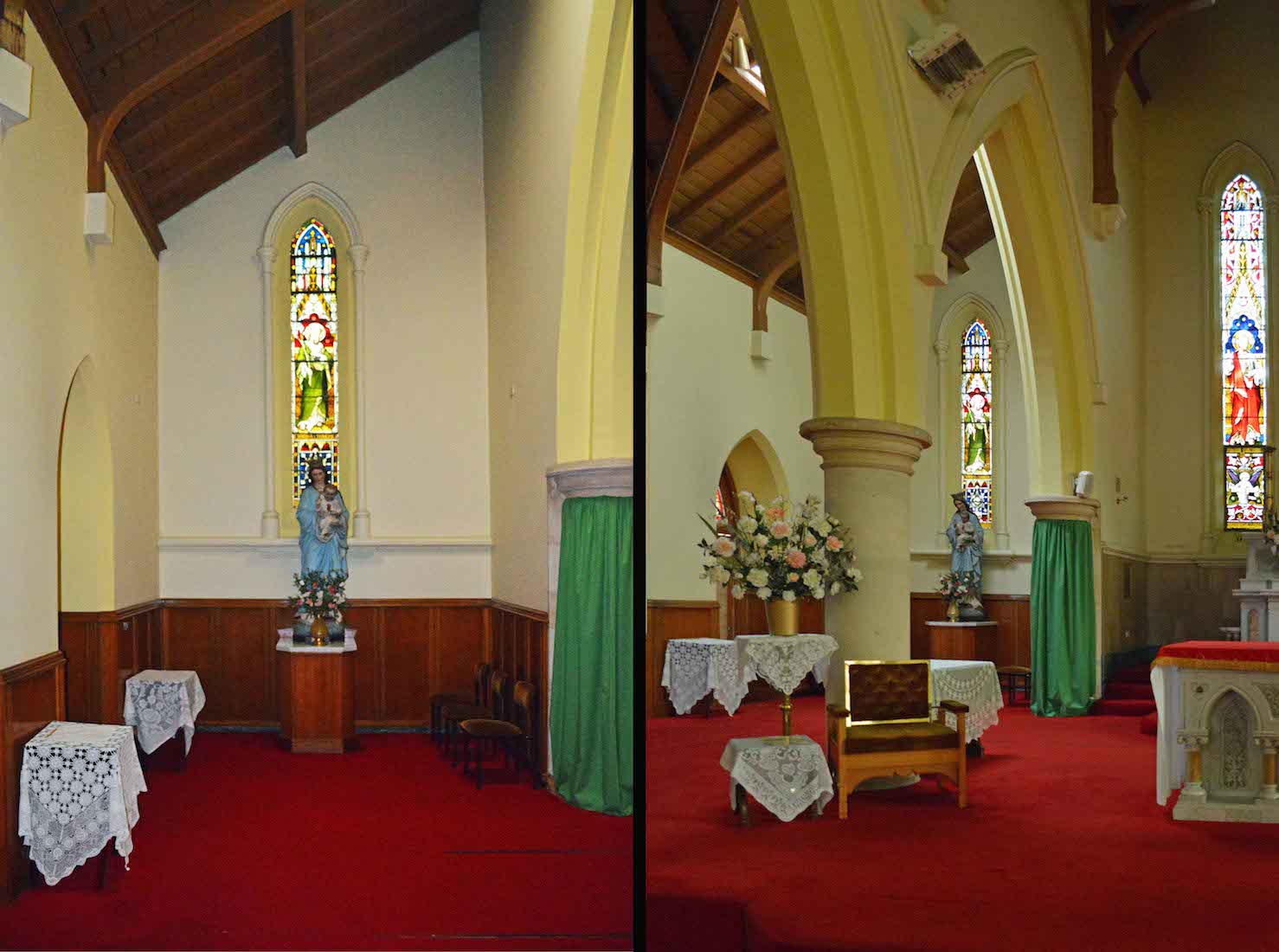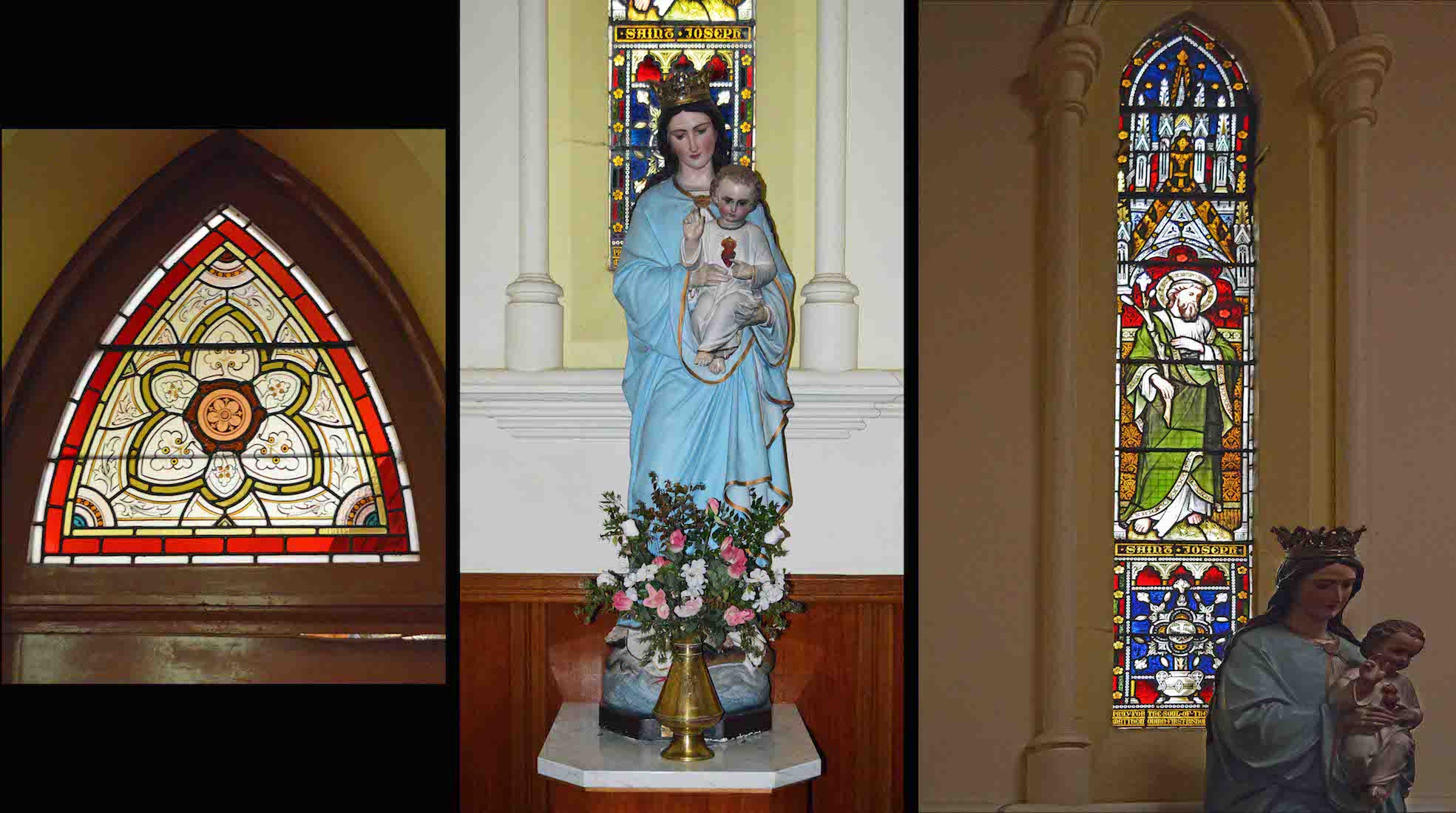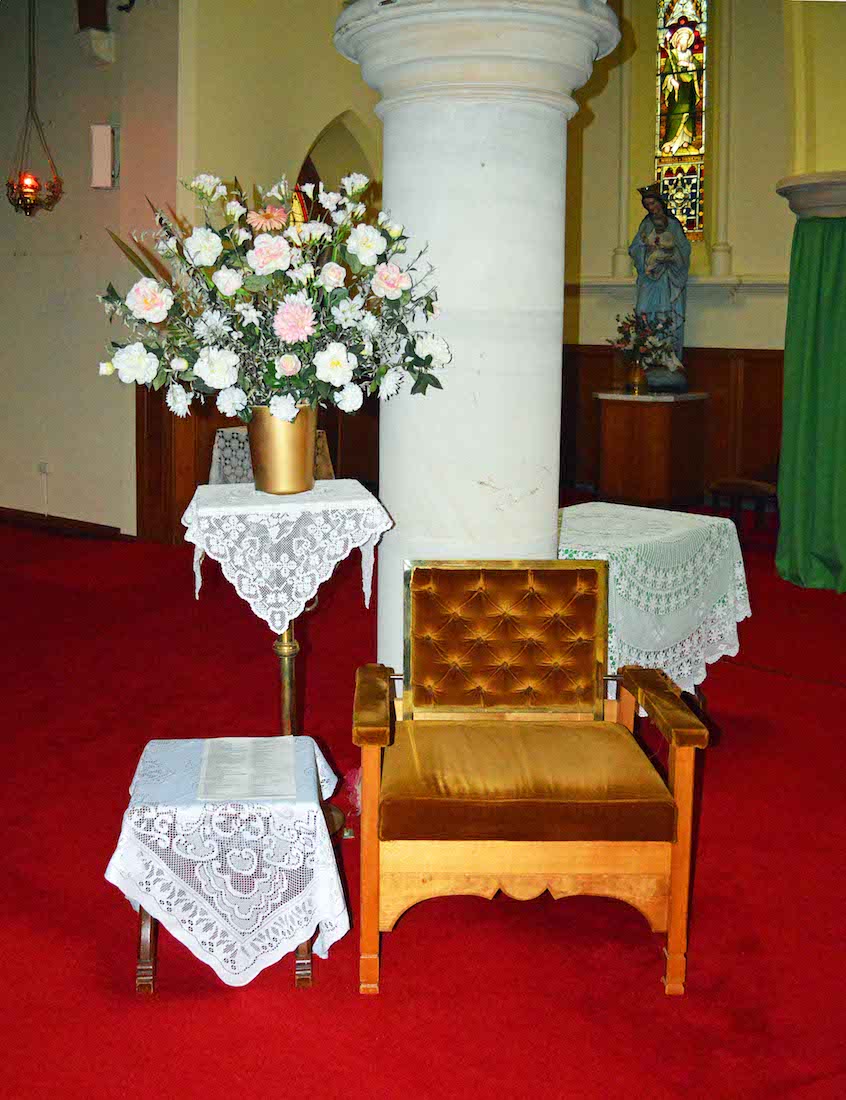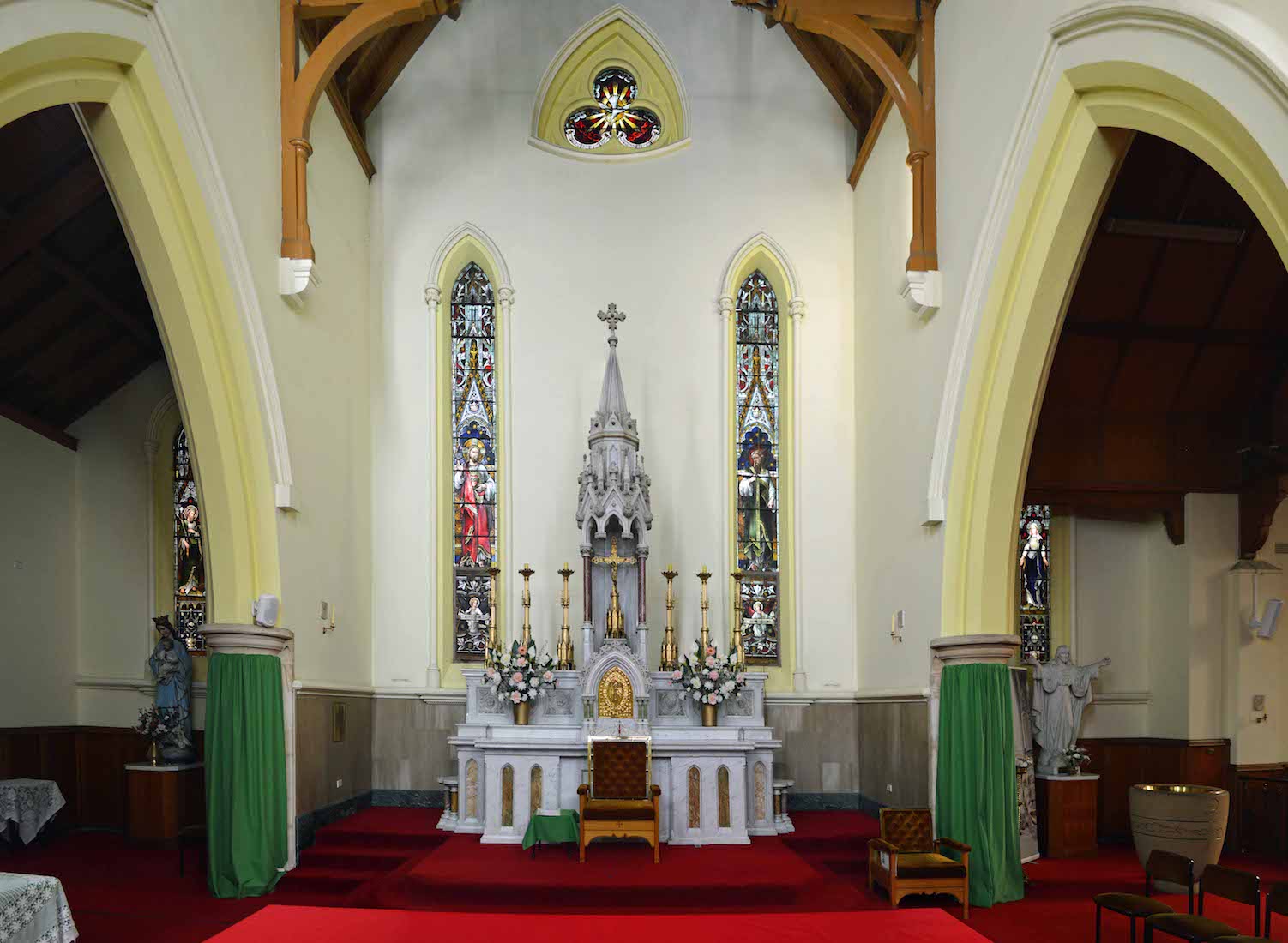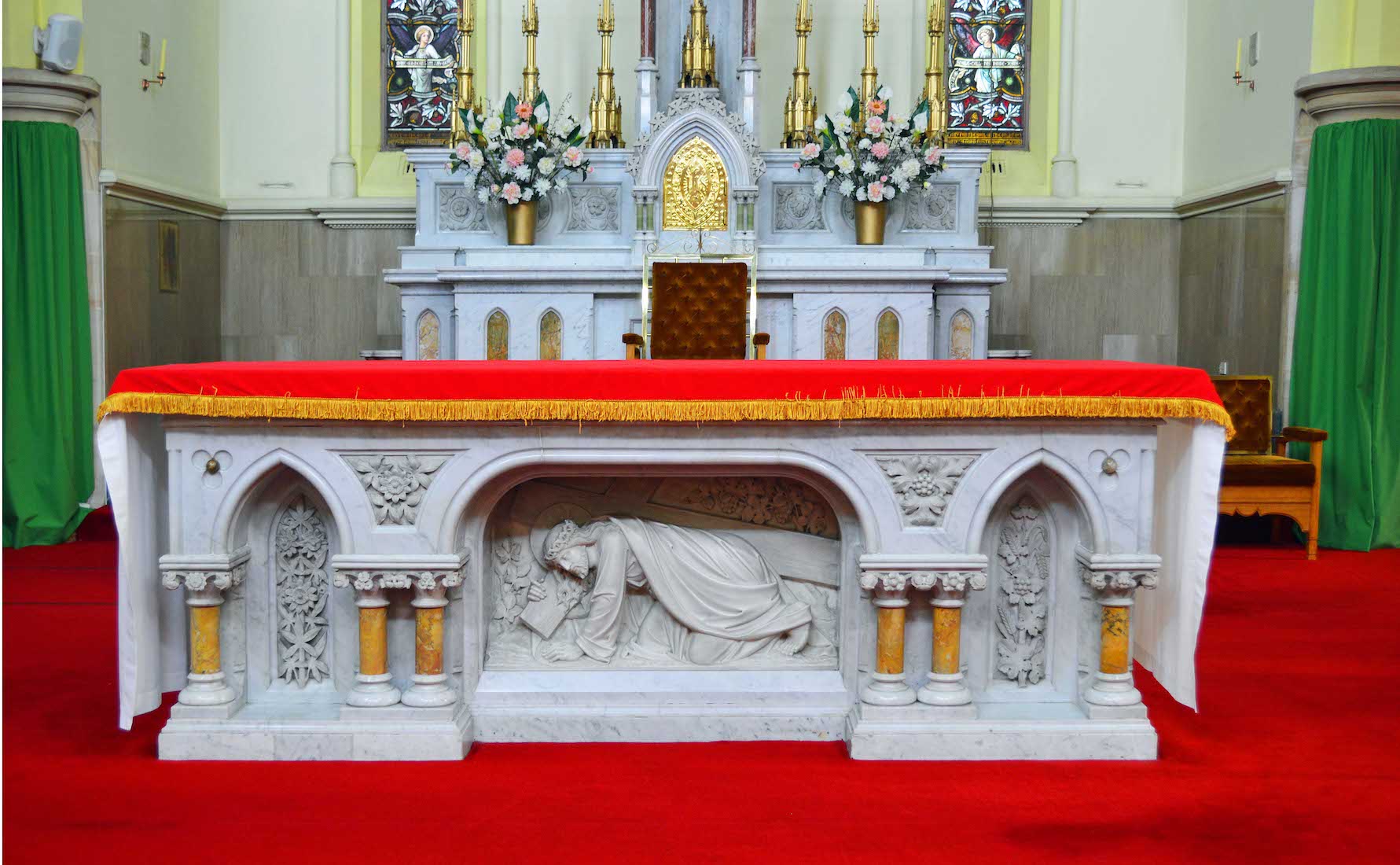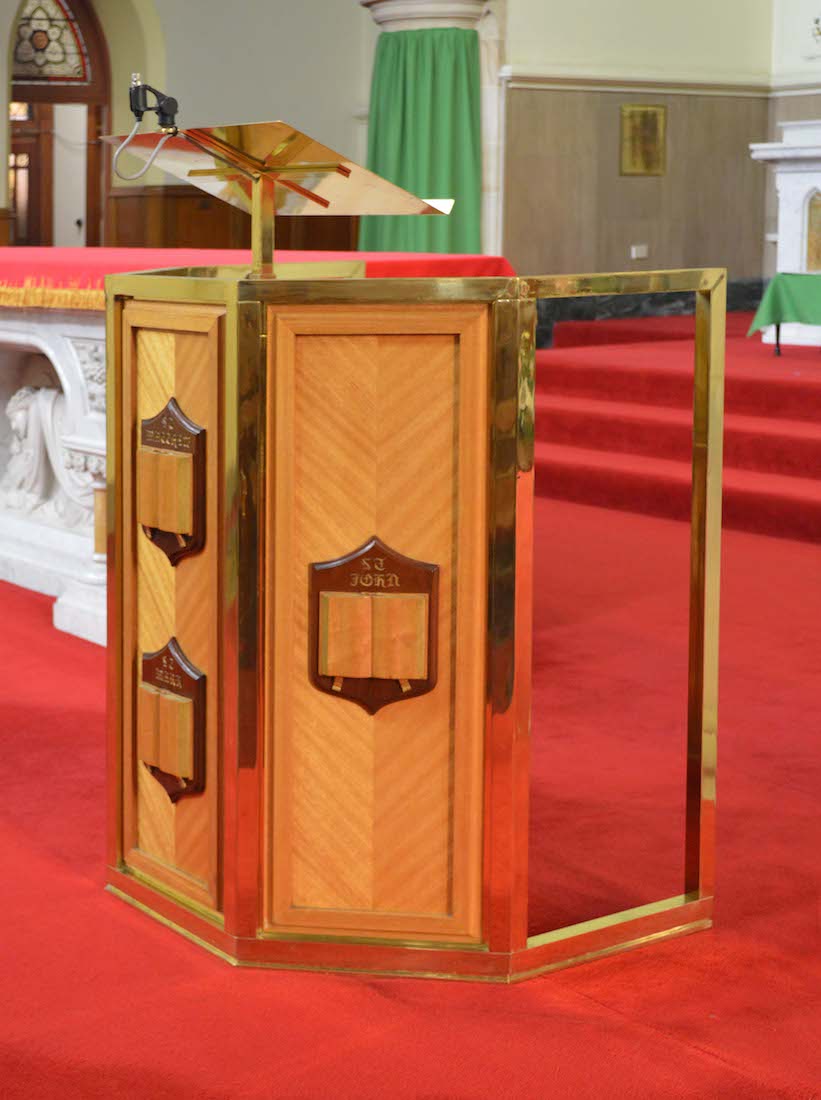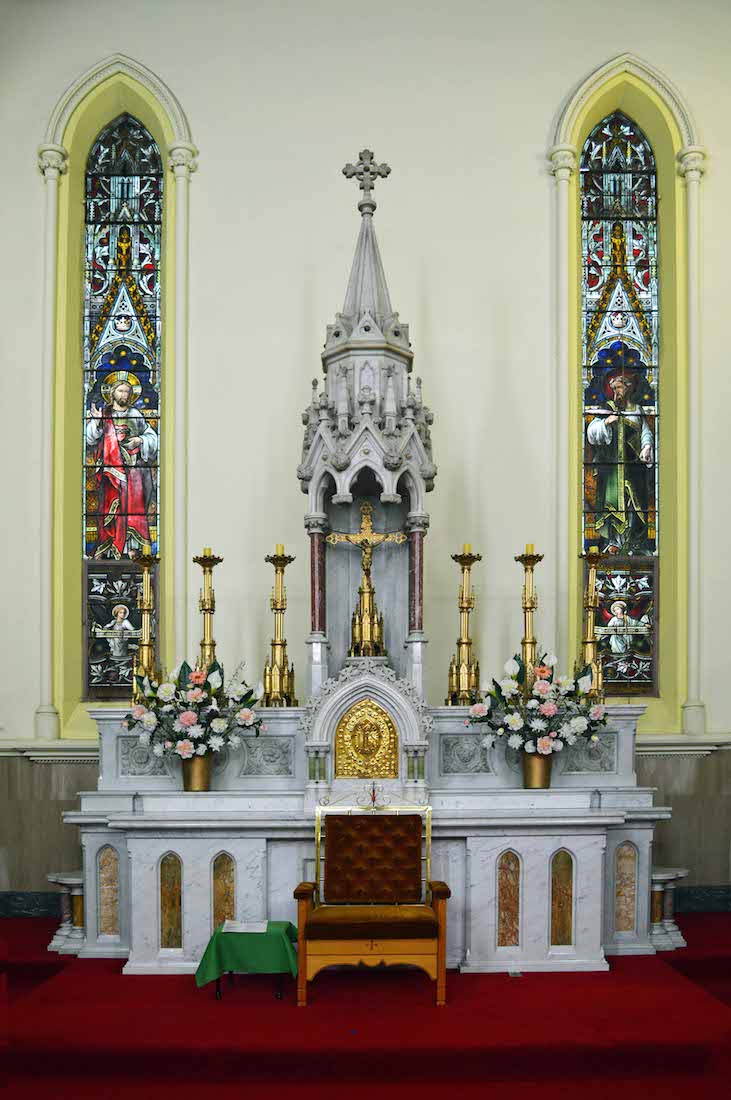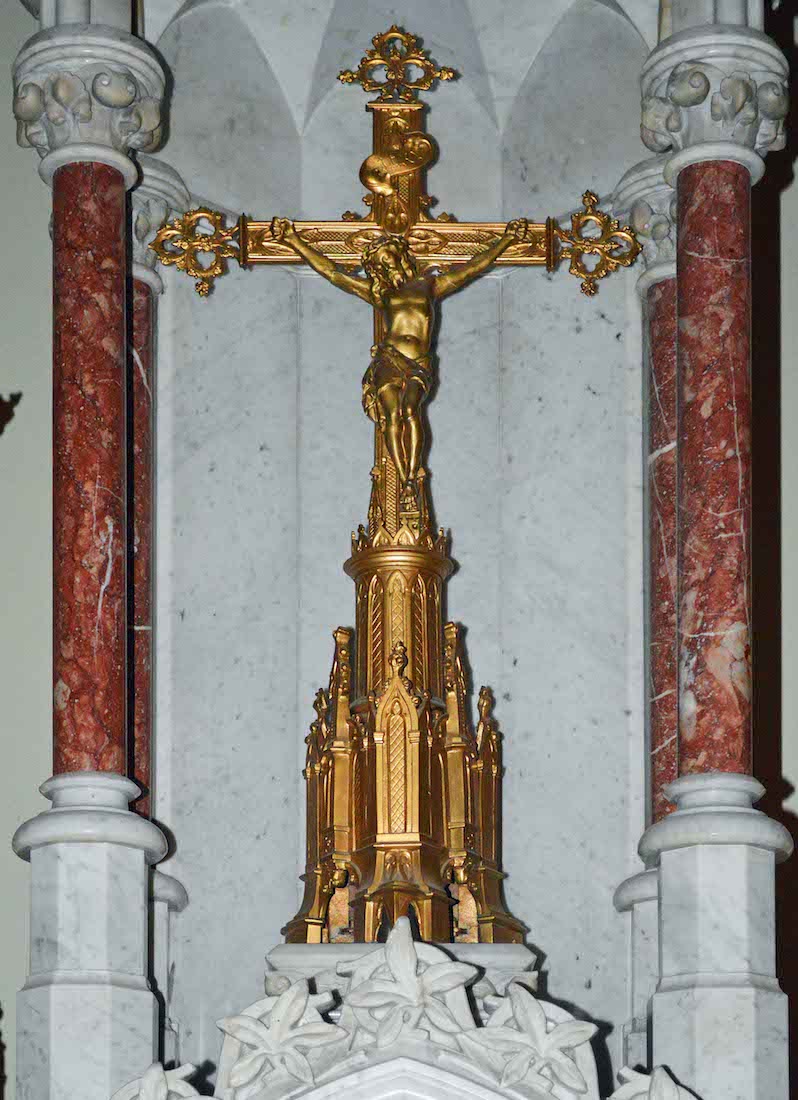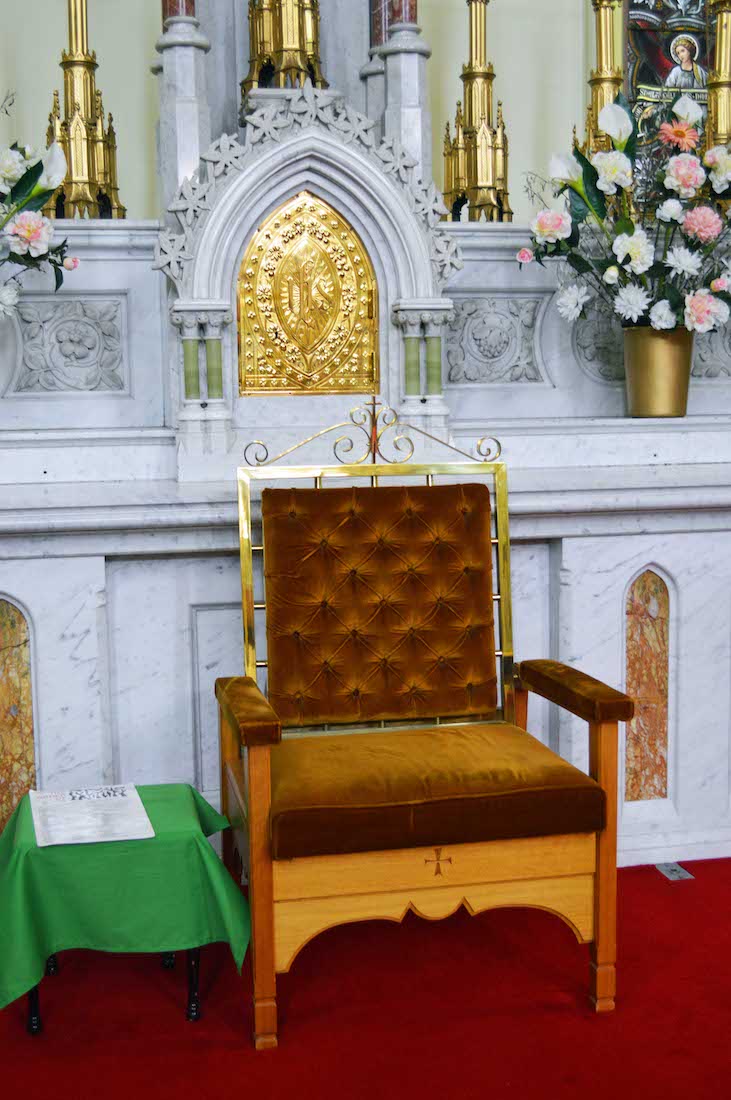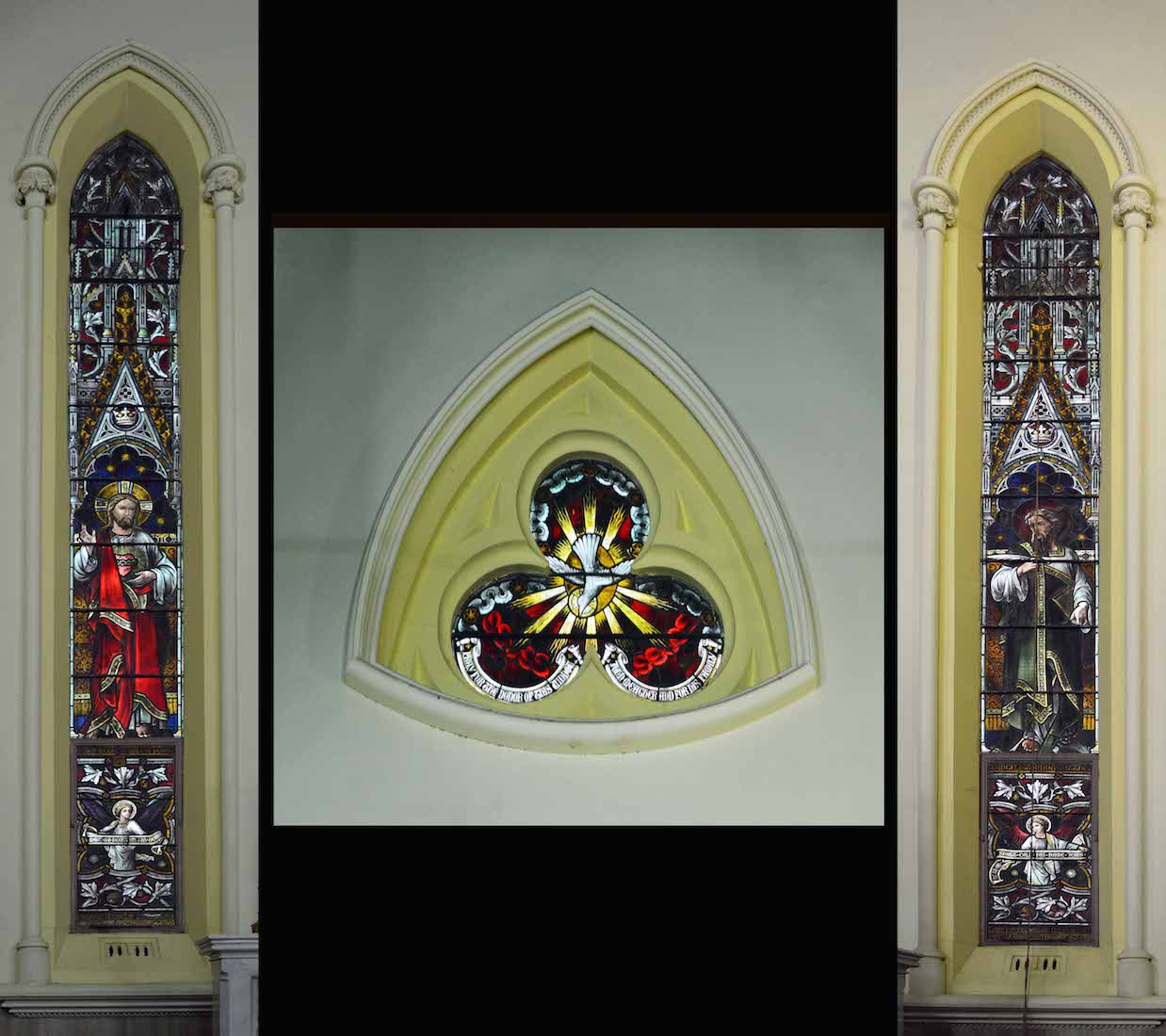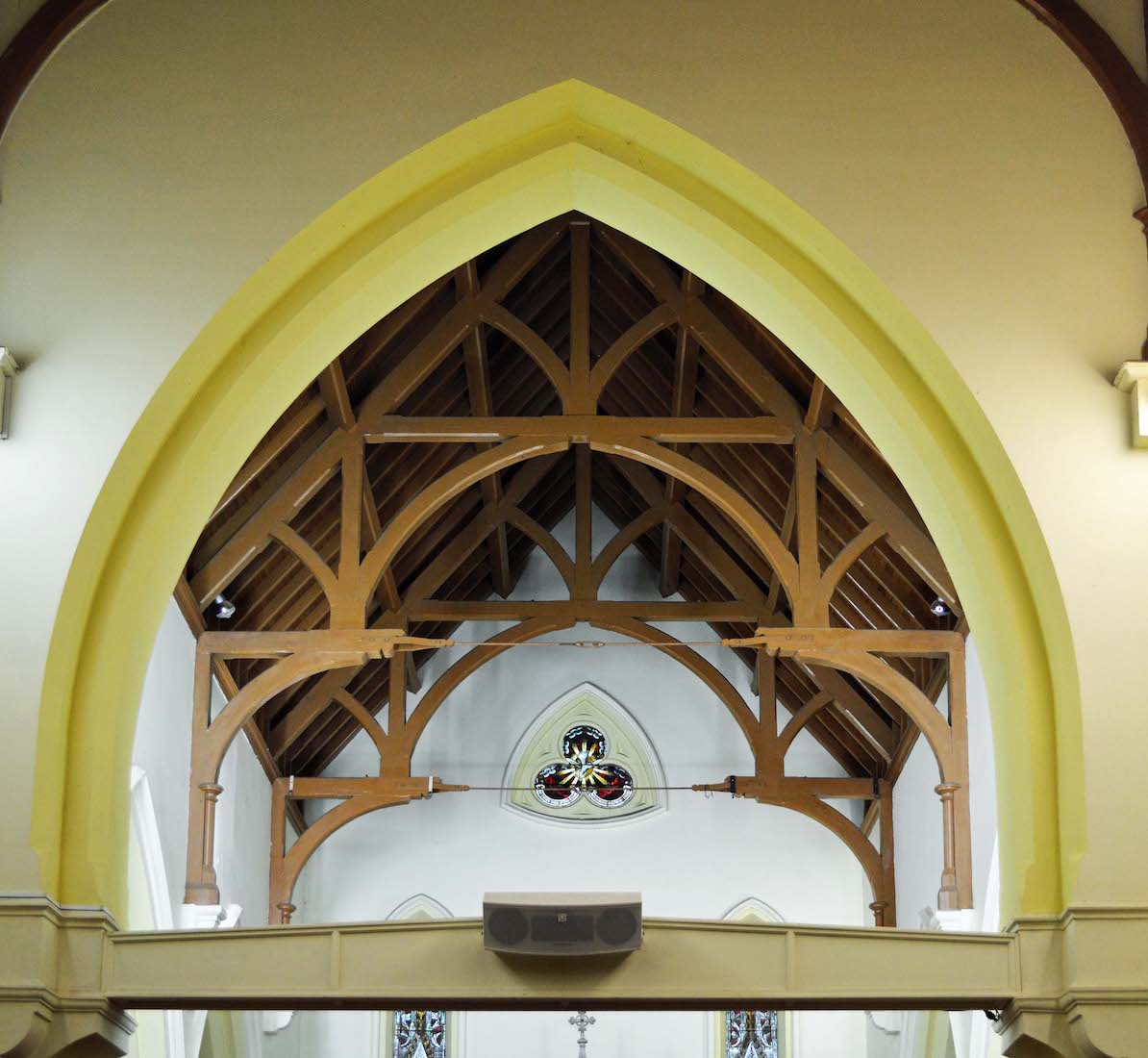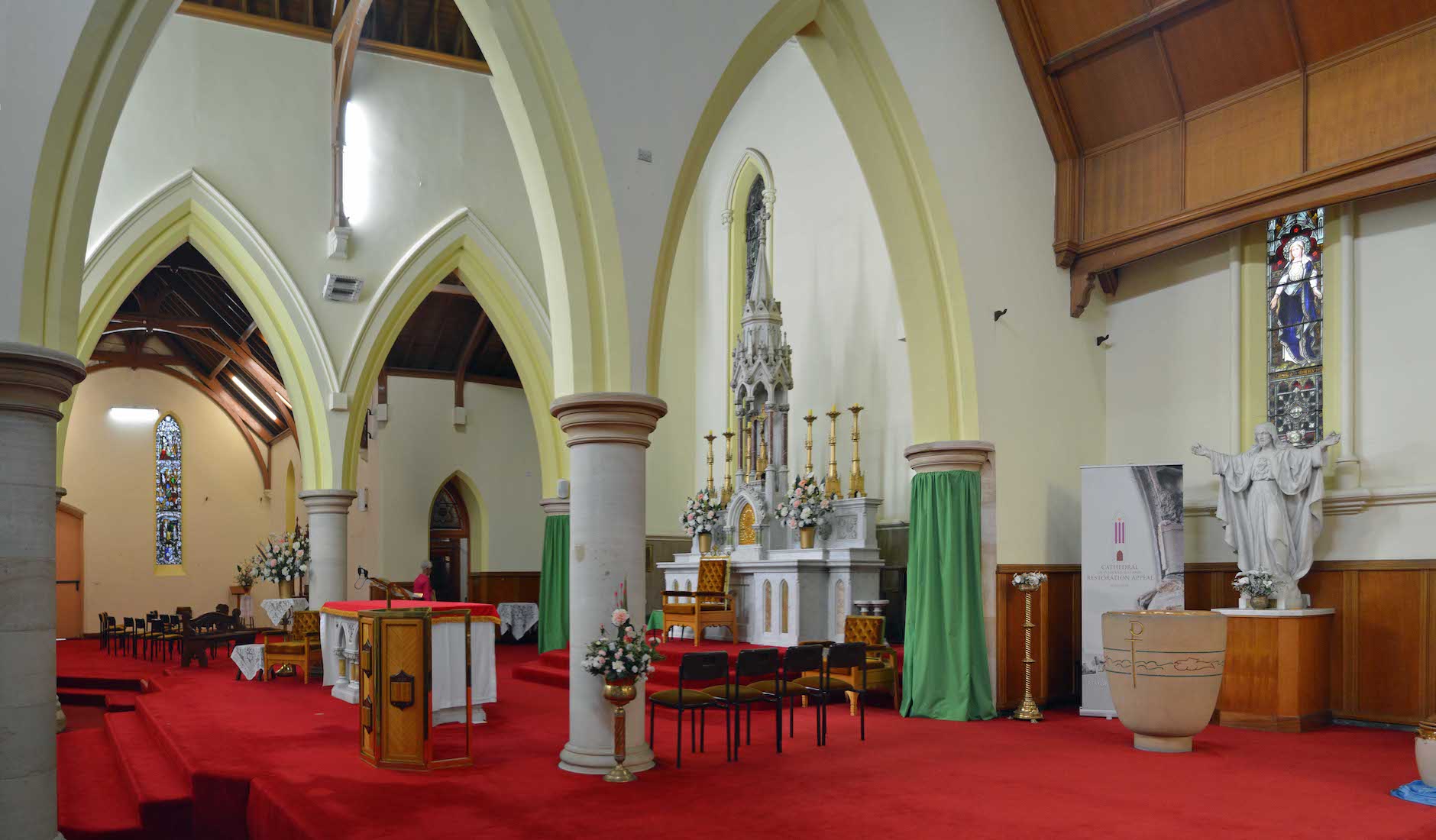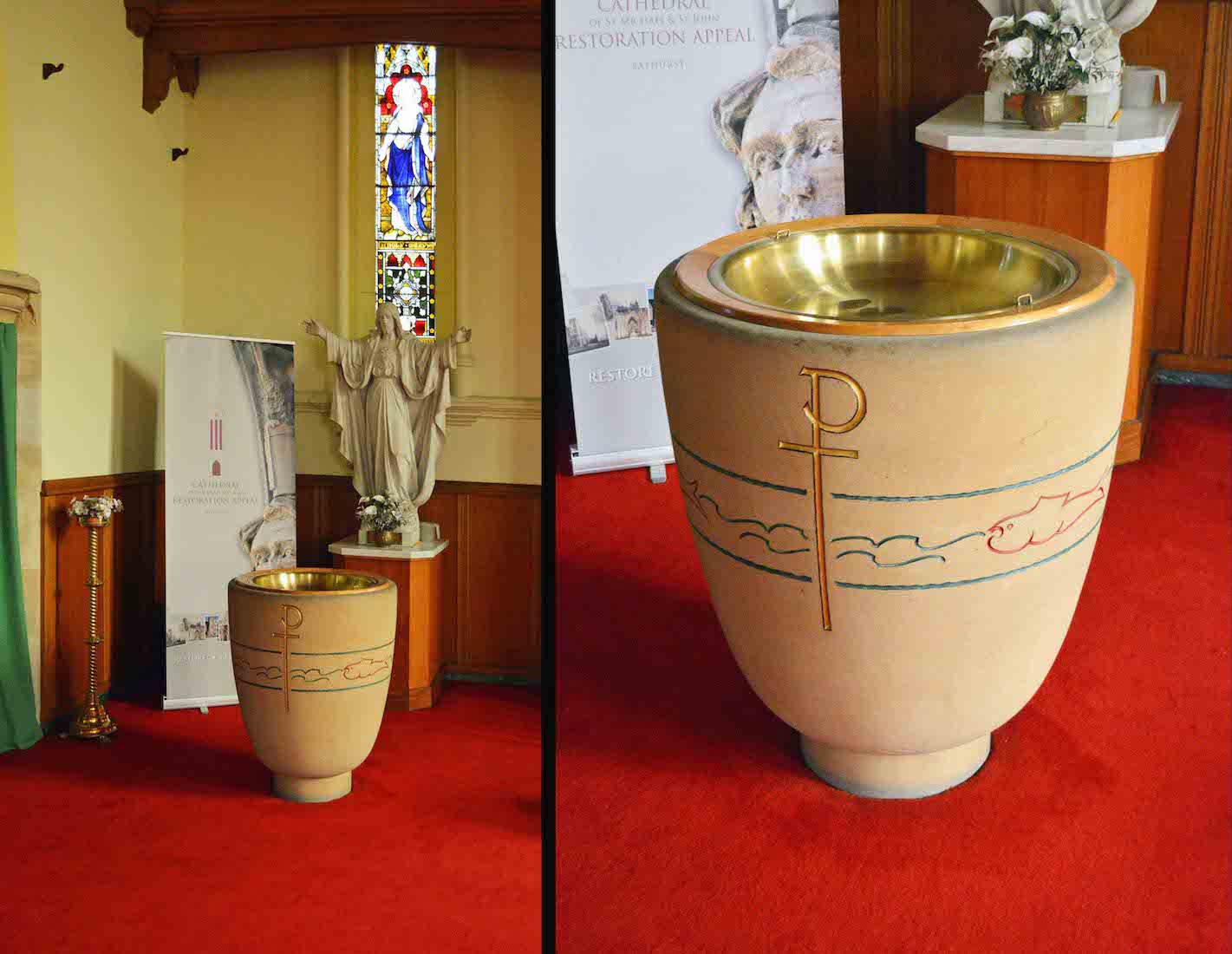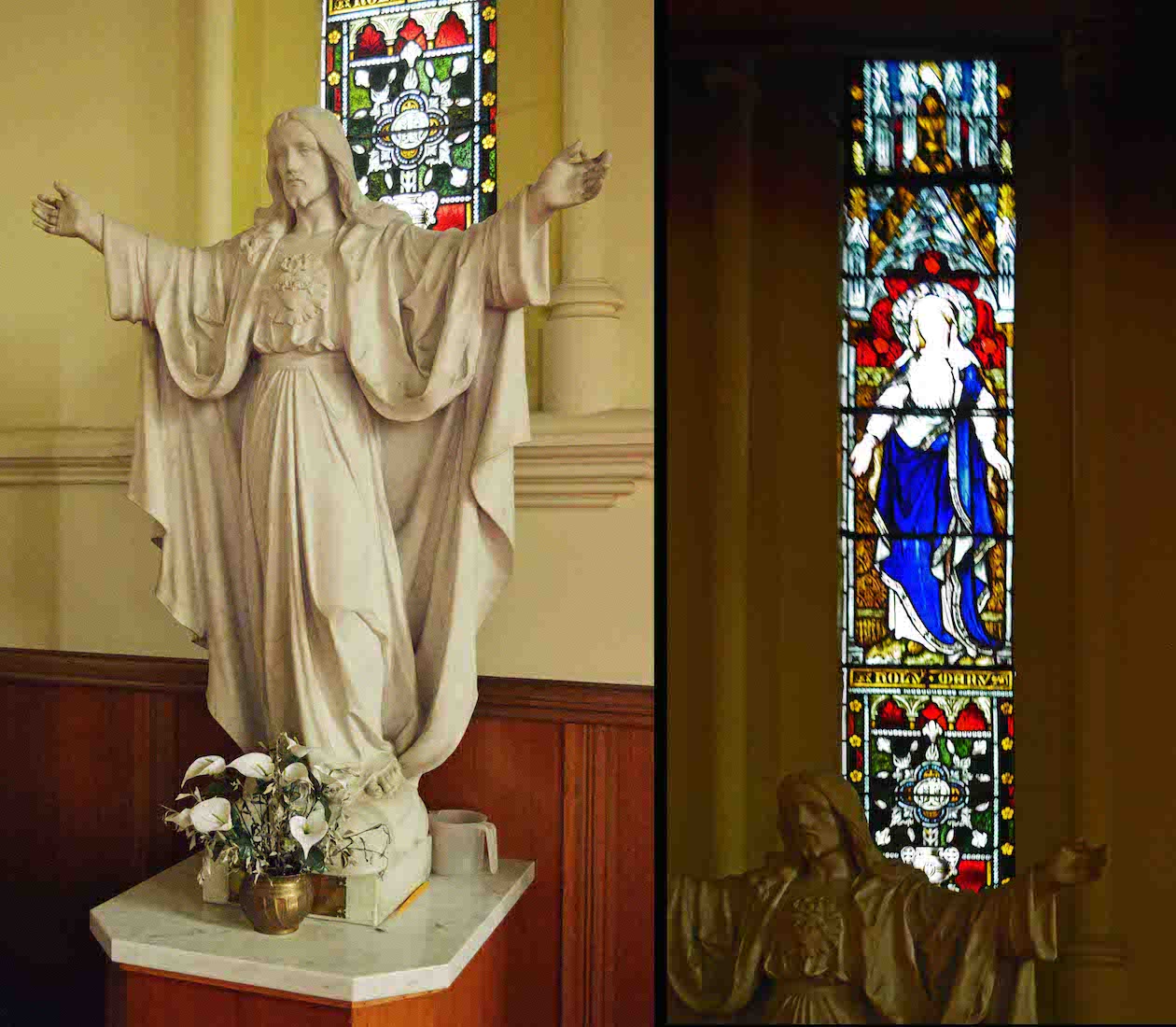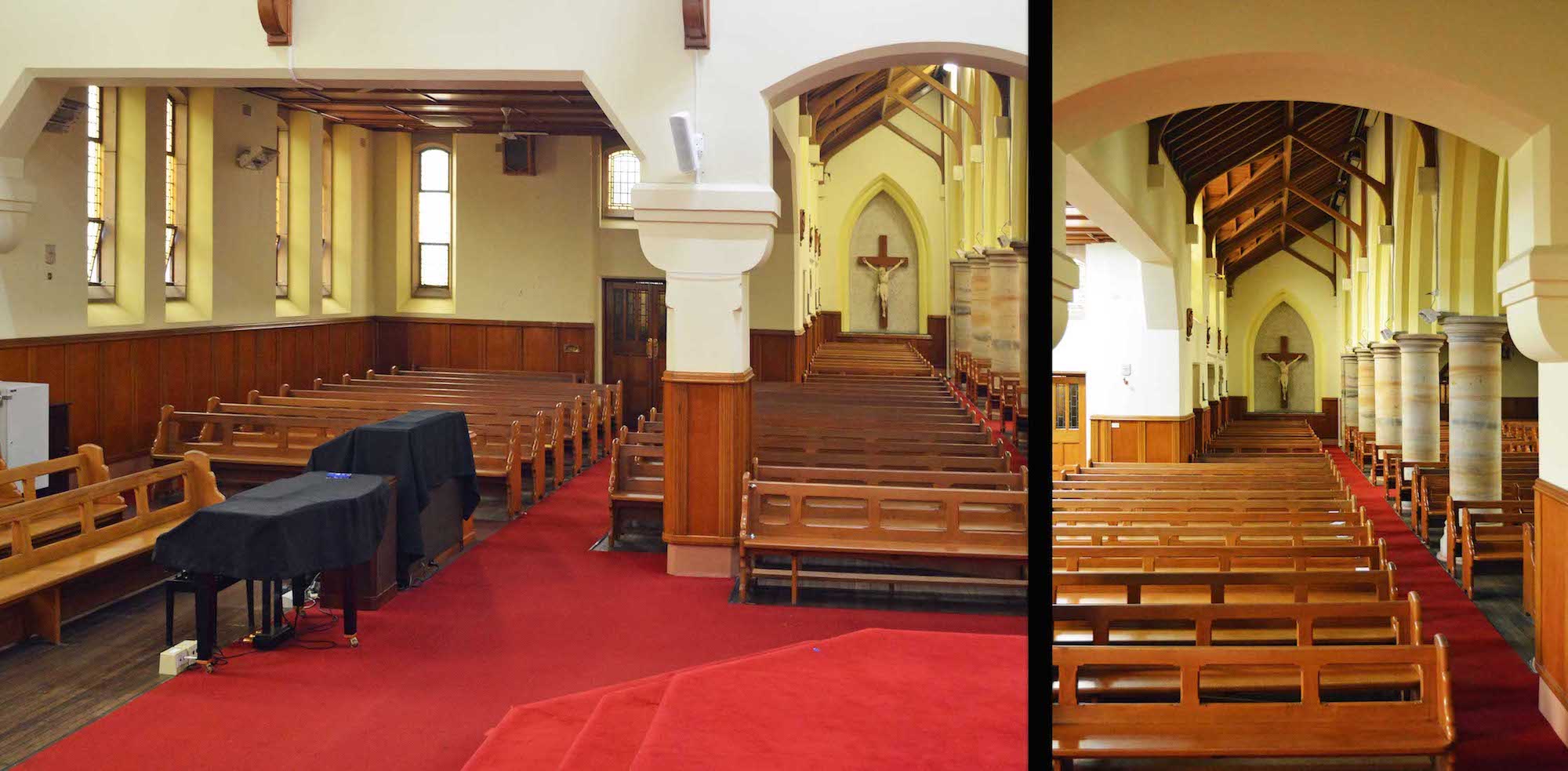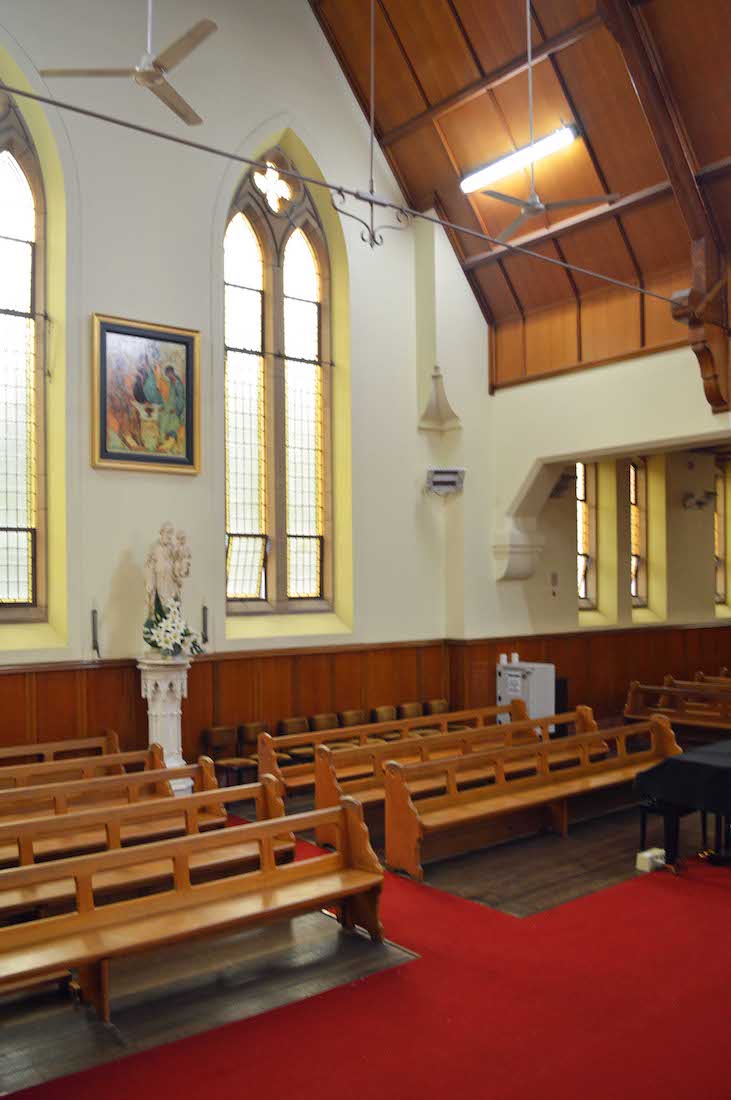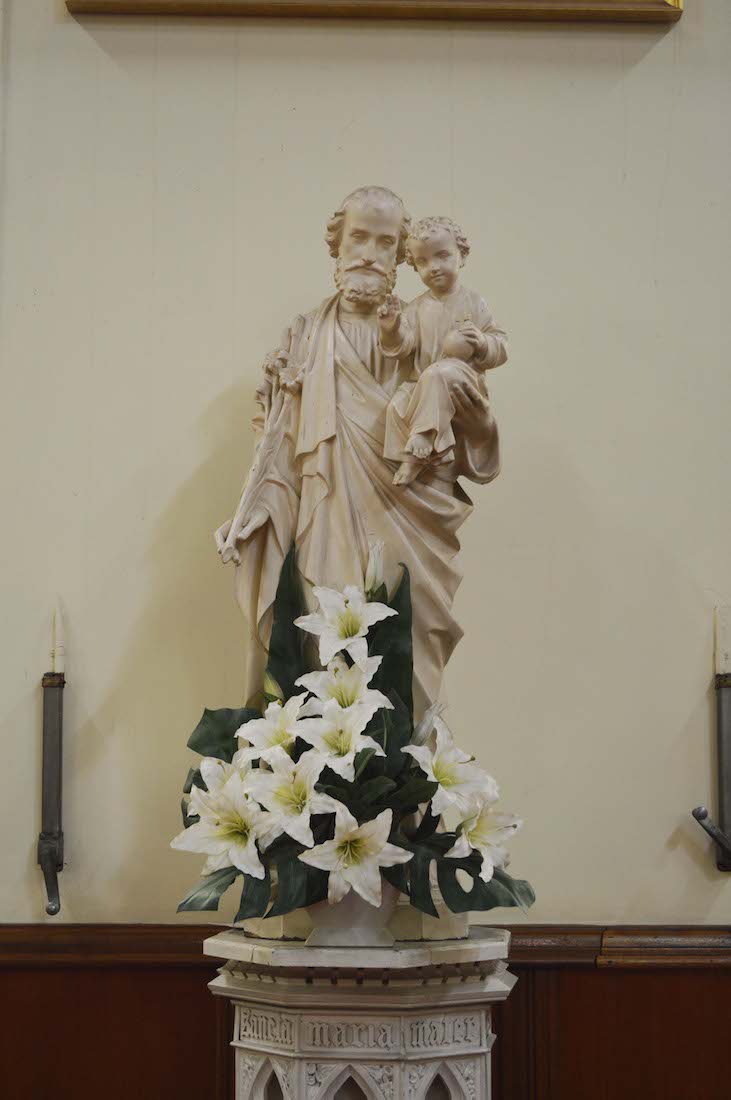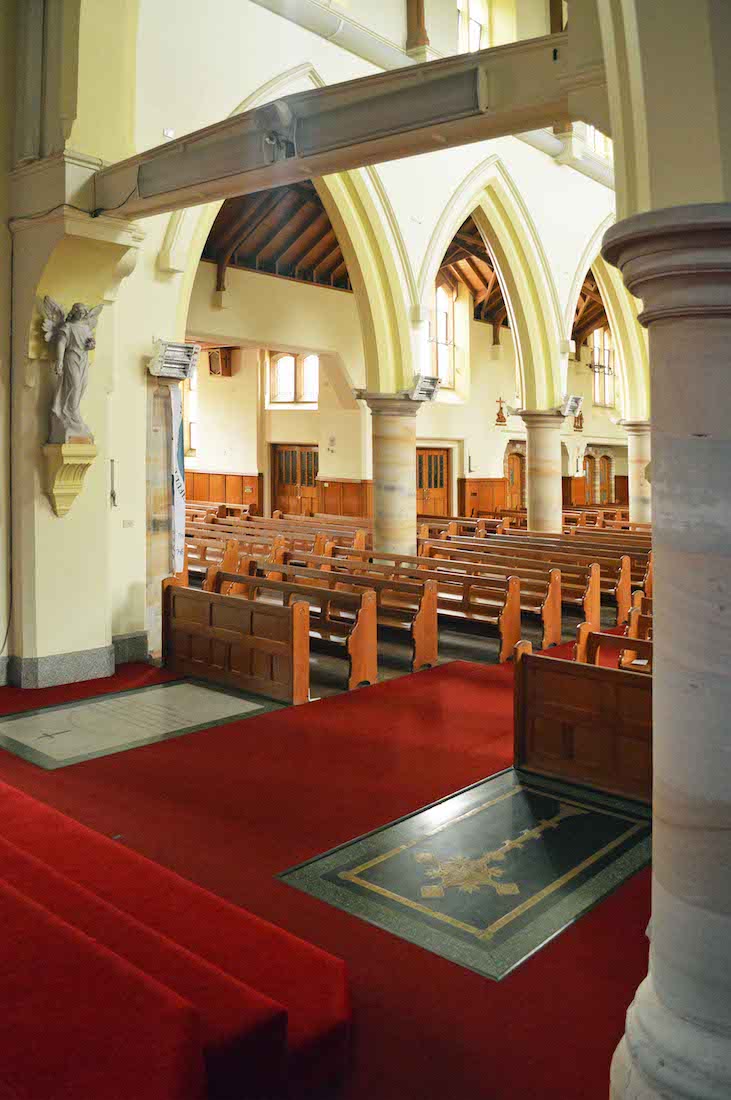
Leaving the transept we look down in front of the nave altar. Here are two tombstones with (in fact) an angel keeping watch on either side. Notice the reinforcing beam above. PLAN
42. TOMBSTONES
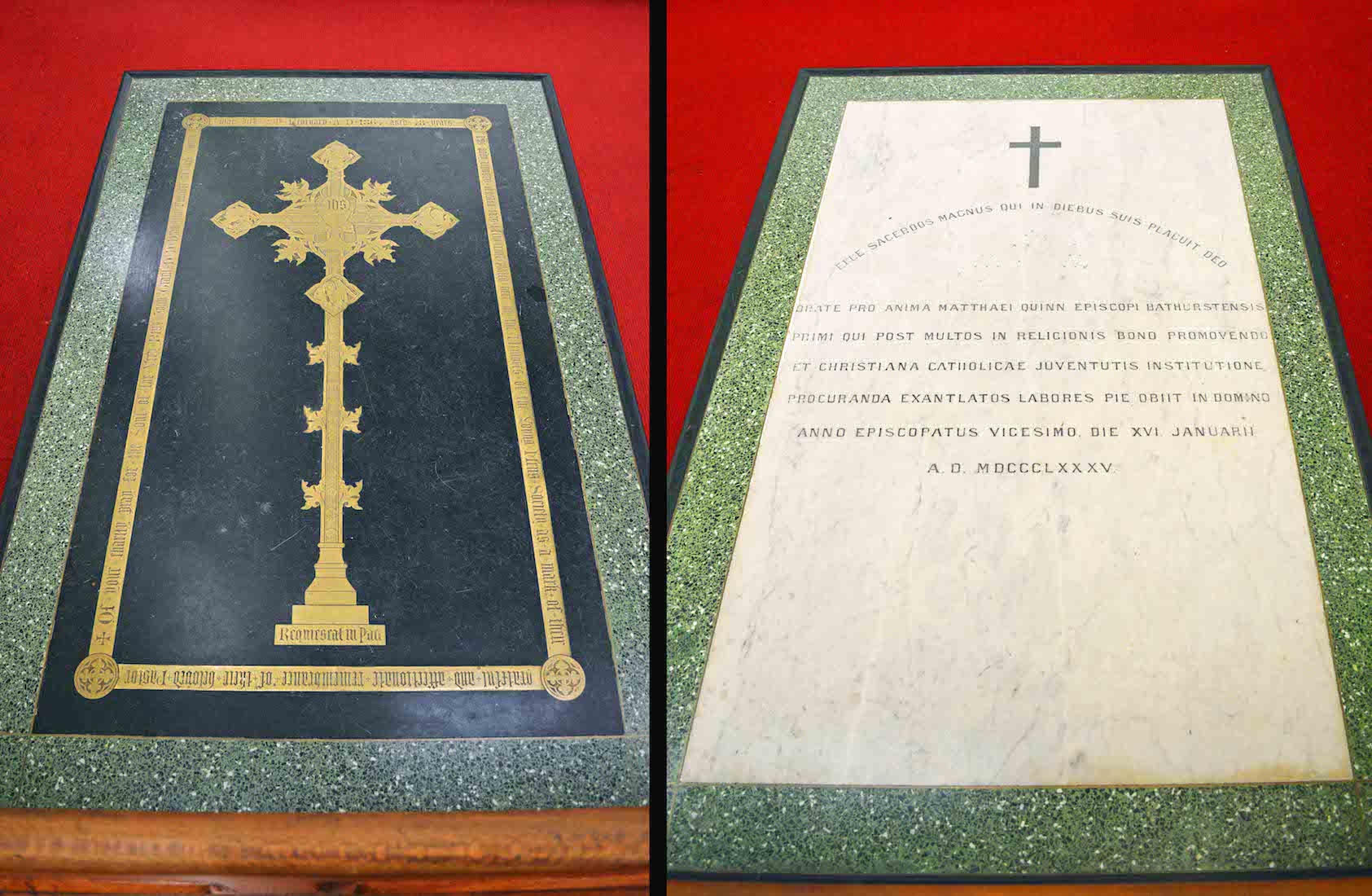
To the left is the tomb of the builder of this Church, Dean John Grant, who died very suddenly in 1864 before the Church was completed. At right is the tomb of the first Bishop of Bathurst. The Latin inscription under the Cross reads: Behold a great priest who in his days pleased God.
43. GUARDIAN ANGELS
The angels on either side guarding the entrance to the sanctuary were a common motif in ecclesiastical symbolism. They date from 1938 and were given by the Johnson family.
44. MARY ALTAR
Just North of the sanctuary is another chapel with a statue of Mary. There is a stained glass window behind, and a door through to the sacristy at left.
45. MARY AND WINDOWS
The triangular window at left is above the sacristy door. The crowned statue of Mary nurses the Infant Jesus who bears the Sacred Heart, Mary has the serpent underfoot. The window depicts St Joseph, and has inscription: ‘Pray for the soul of the Right Reverend Matthew Quinn, first Bishop of Bathurst’.
46. PRECENTOR’S CHAIR
To one side of the sanctuary is the precentor’s chair. In the background we see the sanctuary lamp, the sacristy door, the statue of St Mary, and the St Joseph window.
48. NAVE ALTAR
In front of the high altar is the nave altar, from where the Eucharistic Elements are administered week by week. The central panel shows a graphic depiction of Christ on his way to the Cross.
49. PULPIT
The Cathedral has a modest pulpit which is modern and made of wood. The wooden panels display the four books of the Gospel, bearing the names of the Four Evangelists in Gothic capitals.
50. HIGH ALTAR
The high altar was built by J. Pearce of Ireland, and consecrated in 1897. It contains relics of Saints Laurentia and Vincentia. It is faced with Italian marble with some ornate and colourful variations. Notice the 19th century brass tabernacle door and Gothic style candlesticks.
51. ALTAR CRUCIFIX
The central feature of the high altar is this elaborate golden sculpture of Christ on the Cross. The love of God shown in the sacrifical death of Christ on the Cross is fundamental to the Christian faith.
52. CATHEDRA
The seat of the bishop of the Diocese is called the ‘cathedra’ (from the Greek). This Church is a Cathedral because this seat is here – because the bishop of the local diocese is centred at this Church.
53. SANCTUARY WINDOWS
The trefoil window shows the Holy Spirit descending, as at the Baptism of Jesus. The left window shows the sacred Heart of Jesus; the window is dedicated to Rev Matthew Quinn. The window at right depicts St Matthew the Evangelist, who was Bishop Quinn’s patron saint.
54. SANCTUARY ROOF
The sanctuary has its own charming example of a hammer beam roof.
55. ACROSS THE SANCTUARY
We leave the sanctuary and move across to the baptismal font. This view shows the various aspects of the sanctuary area in context.
56. FONT
The baptismal font was new at the time of the 1960 cathedral renovation. Its style is very 1960s, just around the time of Vatican II. It was originally placed in the narthex, but moved here in the 1980s.
57. NEAR THE FONT
Just behind the font is a statue of the Sacred Heart of Jesus, with arms extended in blessing. The stained glass window shows Mary and dates from 1897. Traditionally the Altar of Mary would have been located here: there have been some Cathedral alterations over the years!
58. SOUTH TRANSEPT, AISLE
The double width South transept has been furnished to provide extra congregational seating. It merges into the South nave aisle which has a dramatic crucifix at its West end.
60. JOSEPH AND JESUS
The statue of St Joseph is thought to have come from the old Convent which stood next door. It is quite an old statue, made of terra cotta rather than plaster. It stands on an ornate Gothic wooden base – not the original.


